Disclosure: This article contains affiliate links. We may earn a commission from purchases at no extra cost to you, which helps our travel content.
When I first visited Nairobi two decades ago as a logistics consultant, my culinary experiences were limited to hotel restaurants and quick business lunches. Returning now as a student of urban planning, I've discovered a city in the midst of a remarkable gastronomic transformation. The intersections of traditional Kenyan cuisine with global influences have created a food scene that deserves serious academic and epicurean attention—particularly for couples seeking a luxurious yet culturally immersive experience.
The Historical Context of Kenyan Cuisine
To truly appreciate Nairobi's current culinary renaissance, one must understand the historical foundations of Kenyan food culture. Traditional Kenyan cuisine represents a fascinating convergence of indigenous ingredients with influences from Arab traders, Indian laborers who arrived during colonial railway construction, and British colonial presence.
During my recent research visit, I spent an afternoon with Professor Mwangi at the University of Nairobi, who explained how nyama choma (grilled meat) evolved from pastoral traditions of the Maasai and Samburu communities. The ubiquitous ugali (cornmeal porridge) tells the story of maize introduction through Portuguese trading routes, while the complex spice profiles in coastal dishes reveal centuries of Indian Ocean commerce.
What makes today's Nairobi food scene particularly fascinating is how chefs are reinterpreting these historical elements through contemporary techniques and presentations. This isn't mere culinary appropriation but rather a thoughtful reclamation and elevation of cultural heritage—a phenomenon I've observed in other postcolonial urban centers from Cape Town to Hong Kong.
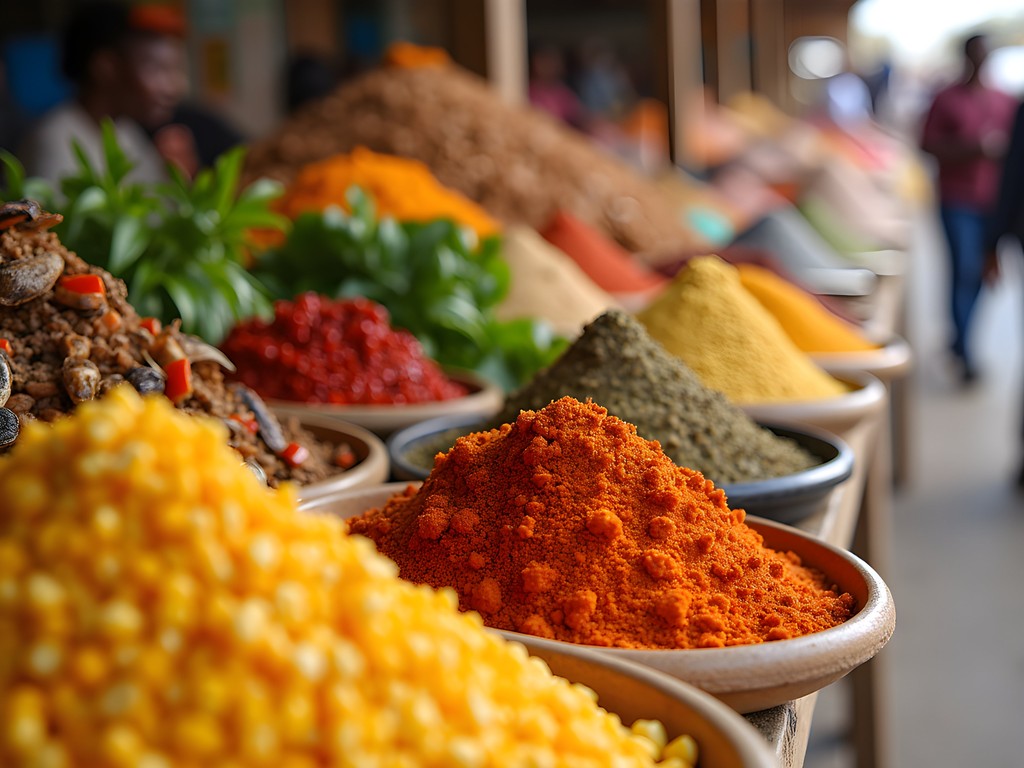
💡 Pro Tips
- Visit the Nairobi National Museum's cultural exhibits before your culinary tour to understand the historical context of Kenyan cuisine
- Look for restaurants that specifically mention 'heritage' or 'traditional' ingredients in their menus
- Ask local chefs about the historical significance of specific dishes—most are passionate about sharing this knowledge
Street Food Safari: Authentic Flavors of Nairobi
Despite my luxury accommodations at the Villa Rosa Kempinski, I dedicated several mornings to exploring Nairobi's vibrant street food scene. This is where the city's culinary heart truly beats, and where couples can share intimate moments of discovery away from the typical tourist experience.
My methodical exploration began at Nairobi's Diamond Plaza food court, where the Indian-Kenyan fusion creates some of the most remarkable flavor combinations I've encountered. The bhajias (spiced potato fritters) and maru bhajias served with tamarind sauce represent the perfect marriage of Kenyan ingredients and Indian culinary techniques.
For those concerned about street food safety (a valid consideration), I recommend joining the Urban Adventures Nairobi Street Food Tour, where guides ensure all vendors meet proper hygiene standards. My tour guide, Joseph, introduced me to mandazi (Kenyan fried bread) fresh from sizzling oil, mutura (Kenyan sausage) grilled over open flames, and the unexpectedly complex githeri (beans and corn stew) that sustained generations of Kenyans.
Prepare your palate for intensity—I found my insulated water bottle indispensable between tastings, especially when sampling the fiery kachumbari (tomato and onion salad) that accompanies many street dishes.
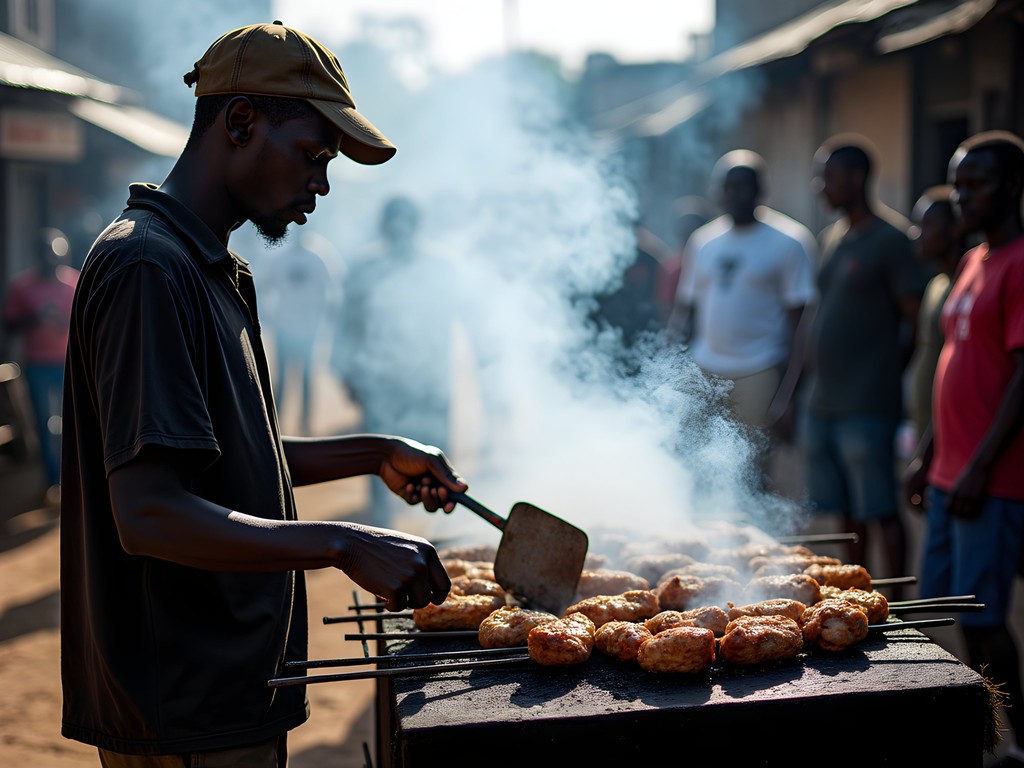
💡 Pro Tips
- Visit street food areas during mid-morning (10-11am) when food is freshly prepared but crowds are manageable
- Bring small denominations of Kenyan shillings for easier transactions with vendors
- Look for stalls with high turnover and locals waiting in line—this ensures freshness
The Rise of Modern Kenyan Fine Dining
Nairobi's fine dining scene has matured remarkably since my first visits in the early 2000s. What was once dominated by European-style establishments catering primarily to expatriates has evolved into a sophisticated ecosystem of restaurants proudly showcasing Kenyan ingredients through contemporary techniques.
The pinnacle of this movement is The Talisman in Karen, where my recent seven-course tasting menu featured ingredients I'd never encountered in Western contexts—like terrine of crocodile with fermented honey, and ostrich carpaccio with indigenous bitter herbs. The restaurant's architecture itself tells a story of colonial history reimagined, set in a converted farmhouse with décor that thoughtfully acknowledges both Kenya's painful colonial past and its vibrant present.
Equally impressive is Cultiva Farm, where the farm-to-table concept takes on new meaning through their regenerative agriculture practices. The restaurant sources 90% of ingredients from their own farm, and the menu changes not just seasonally but sometimes daily. Their tilapia with foraged mushrooms and native greens was a revelation in simplicity and precision.
For couples seeking the ultimate luxury dining experience, I recommend securing reservations at Mawimbi Seafood Restaurant, where the tasting menu with Kenyan wine pairings provides a comprehensive education in coastal Kenyan flavors. Their sommelier introduced me to surprisingly sophisticated Kenyan wines from the highlands that paired beautifully with the seafood progression.
To capture these culinary creations, I used my smartphone lens kit for close-up food photography without disturbing other diners with bulky equipment.
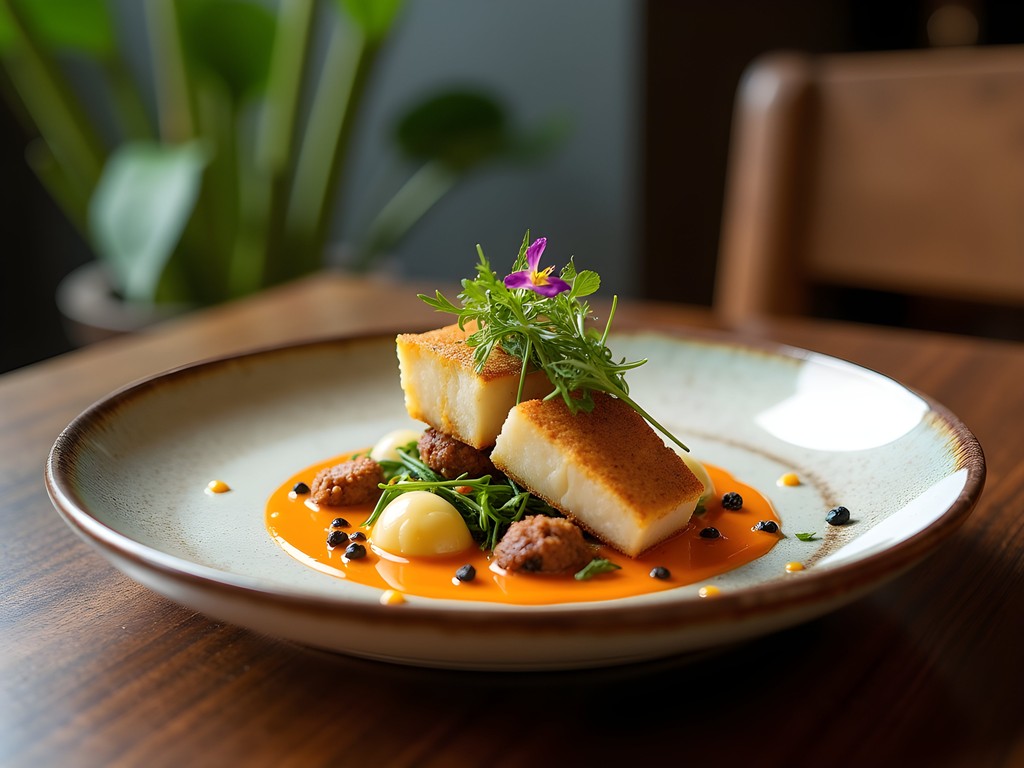
💡 Pro Tips
- Make reservations at least two weeks in advance for fine dining establishments, especially for weekend evenings
- Request special dietary accommodations when booking—most high-end restaurants are surprisingly accommodating to dietary restrictions
- Consider the chef's tasting menu for the most comprehensive experience of a restaurant's philosophy
Culinary Workshops: Hands-On Learning for Couples
For couples who appreciate food not just as consumption but as cultural education, Nairobi offers exceptional opportunities for hands-on culinary experiences. These workshops provide intimate settings for couples to connect while gaining deeper understanding of Kenyan food traditions.
My academic background in cultural studies led me to Wangari's Kitchen, a cooking school in the Lavington neighborhood founded by a former anthropology professor. What distinguishes this experience is the historical context provided before each cooking demonstration. Participants don't just learn to prepare mukimo (mashed potatoes with peas, corn and greens); they understand its significance in Kikuyu ceremonies and how the dish evolved through periods of resource scarcity.
The most memorable experience was at One Stop Butchery's private nyama choma masterclass, where my small group learned the entire process from selecting cuts to preparing the traditional accompaniments. The cooking thermometer I brought proved unnecessary—our instructor taught us the traditional hand-pressure method for determining doneness that Kenyan grill masters have used for generations.
For those interested in sustainable food systems, I highly recommend the Urban Farming Workshop at Vertical Farm Kenya, where couples learn about innovative agricultural approaches addressing food security in rapidly urbanizing environments. The workshop concludes with a meal prepared entirely from the farm's produce, accompanied by a fascinating discussion about food sovereignty in contemporary Africa.
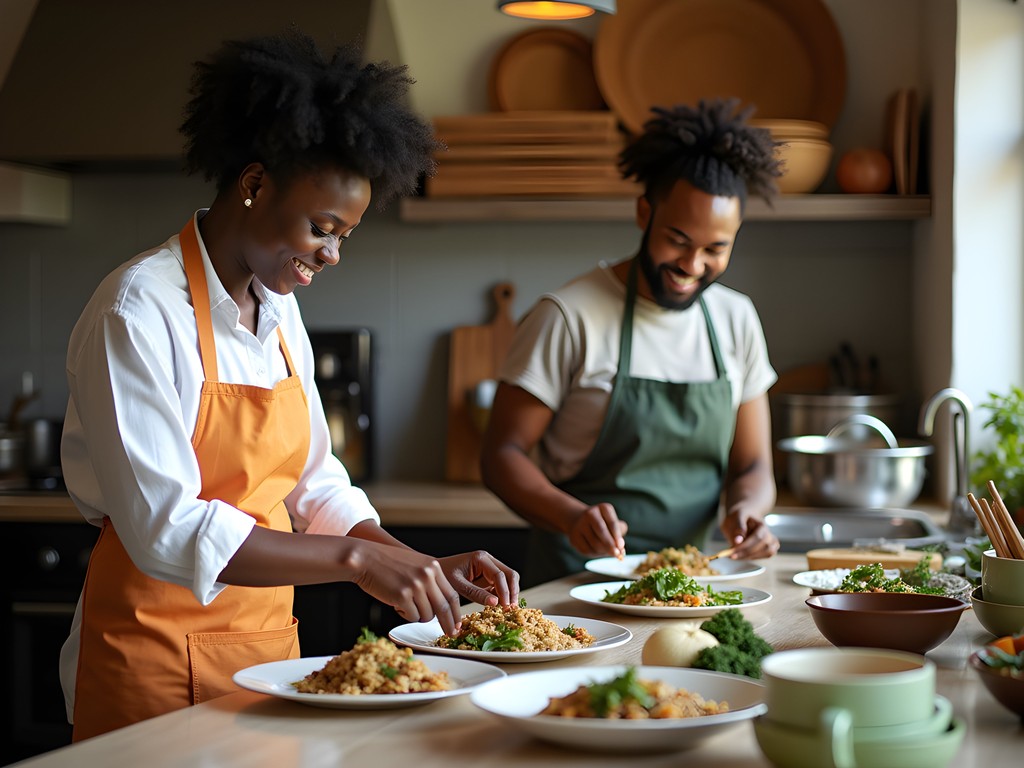
💡 Pro Tips
- Book culinary workshops at least 3-4 days in advance as classes often have limited capacity
- Wear comfortable, washable clothing and closed-toe shoes for kitchen safety
- Bring a small notebook for recipes and cultural insights—many techniques aren't written down elsewhere
Coffee Culture: Kenya's Liquid Treasure
No analysis of Nairobi's culinary landscape would be complete without examining its coffee culture. Kenya's arabica beans are prized worldwide, yet historically, the best Kenyan coffee was exported rather than consumed domestically. This dynamic has shifted dramatically in the past decade, with specialty coffee shops now showcasing local beans through various preparation methods.
My systematic exploration began at Nairobi Coffee Exchange, where I observed the fascinating auction process that determines global prices for Kenyan coffee. This provided essential context for understanding the economic structures behind what we casually consume.
For couples seeking both quality and ambiance, Spring Valley Coffee in Westlands offers an ideal setting. Their knowledgeable baristas can guide you through comparative tastings of single-origin Kenyan beans from different regions—I was particularly struck by the distinct berry notes in beans from the volcanic soils of Mt. Kenya versus the more chocolate-forward profile of Nyeri beans.
The most impressive experience was at Brown's Cheese Farm in Limuru, where their coffee and cheese pairing workshop creates unexpected flavor combinations. The acidity of their washed-process Kenyan coffee cut beautifully through their aged gouda, creating a sensory experience greater than the sum of its parts.
To truly appreciate these nuanced flavors, I recommend bringing a coffee tasting journal to record your impressions of different beans and preparation methods. For those wishing to bring Kenya's coffee excellence home, vacuum sealed containers will preserve freshness during travel.
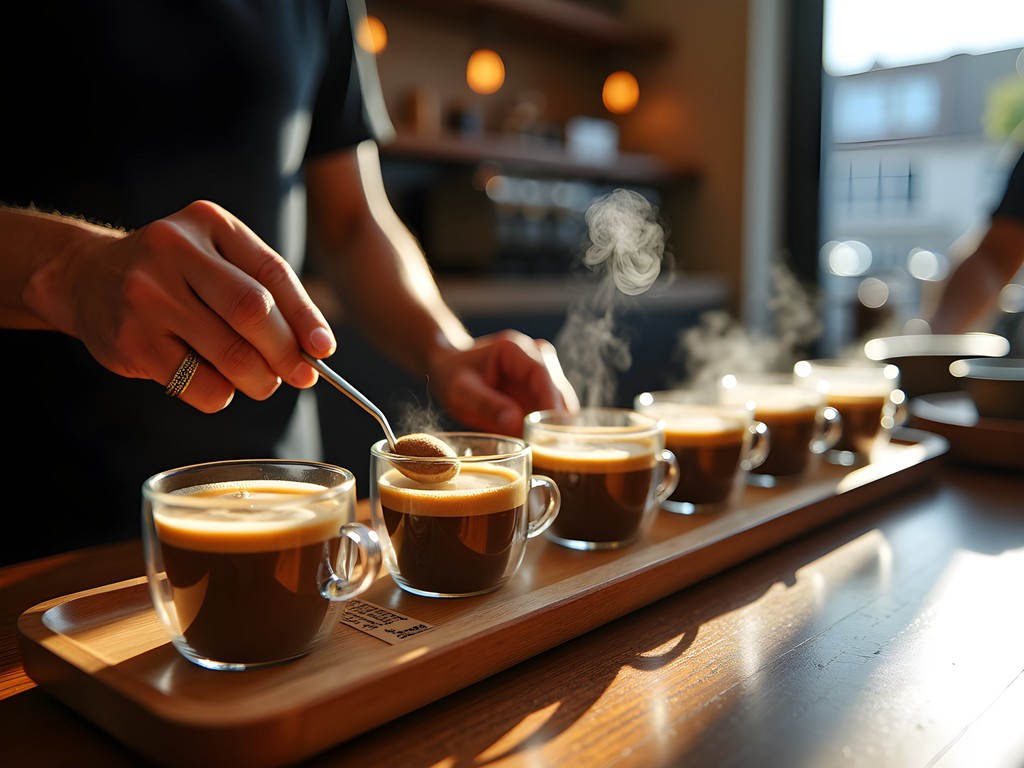
💡 Pro Tips
- Schedule coffee tastings earlier in the day when your palate is most sensitive
- Between tastings, cleanse your palate with room temperature water rather than cold
- Ask baristas about the specific processing methods used—this significantly impacts flavor profiles
Final Thoughts
Nairobi's culinary landscape represents far more than a collection of dining establishments—it embodies the complex interplay of history, culture, and innovation that defines Kenya's capital today. For couples seeking a luxury food experience that transcends mere consumption, this city offers remarkable opportunities to connect through shared discovery.
What I find most compelling about Nairobi's food scene is how it challenges Western narratives about African cuisine. Here, traditional techniques aren't relics but living practices being thoughtfully reinterpreted. Indigenous ingredients aren't novelties but foundations being celebrated with newfound appreciation.
As you plan your culinary journey through Nairobi, I encourage you to approach each meal as both an academic and sensory experience. Ask questions about ingredients and techniques. Seek stories behind dishes. Connect with the people whose hands and histories shape what appears on your plate.
In doing so, you'll discover that Nairobi's food revolution isn't just about what's being served—it's about reclaiming narratives, preserving heritage, and creating new expressions of Kenyan identity through the universal language of food. And perhaps that's the most luxurious experience of all: meaningful connection to place and people through the simple act of breaking bread together.
✨ Key Takeaways
- Nairobi's culinary scene successfully balances traditional techniques with contemporary innovation
- For the most authentic experience, combine high-end dining with street food exploration
- Participatory culinary workshops offer deeper cultural understanding than restaurant meals alone
- Kenya's coffee culture provides insight into both agricultural heritage and economic structures
📋 Practical Information
Best Time to Visit
March to May (spring) when seasonal ingredients are most abundant
Budget Estimate
$200-350 per day for luxury dining experiences and accommodations
Recommended Duration
7 days minimum to experience the full range of culinary offerings
Difficulty Level
Beginner

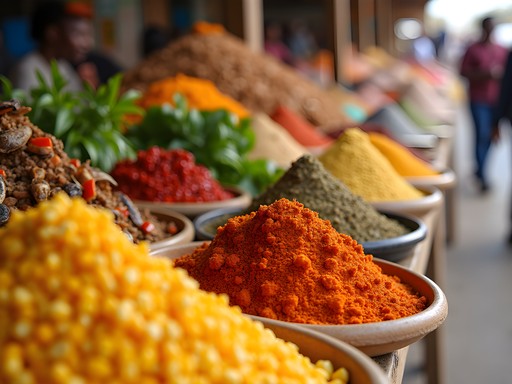
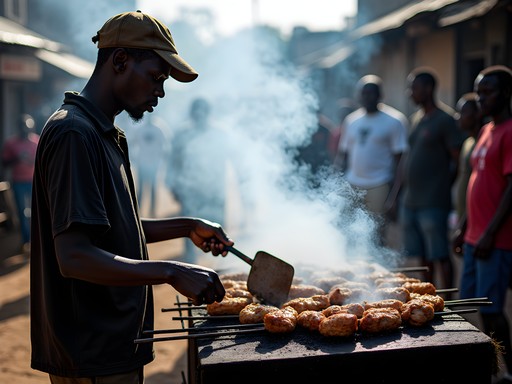
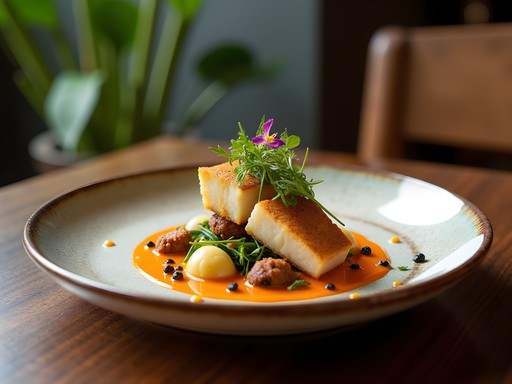
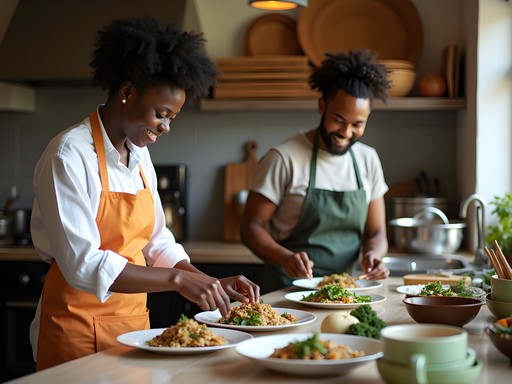
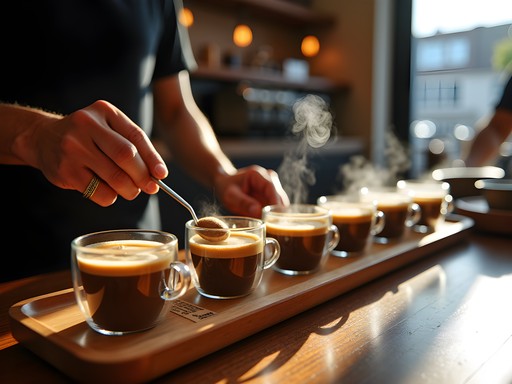










Comments
smartperson
Love this!! The mukimo I had in Nairobi changed my life lol
Gregory Boyd
Really interesting read, Ellie. What struck me most about Nairobi's food evolution is how it mirrors the broader economic and social changes in East Africa. The street food scene you describe - particularly around places like Ngara and the CBD - represents authentic working-class cuisine that's been there for generations. But the fine dining movement seems to be driven by returning diaspora and a growing middle class wanting to reclaim and modernize traditional foods. I spent six weeks there doing research on urban development patterns, and the correlation between neighborhood gentrification and restaurant openings was fascinating. The challenge will be maintaining authenticity while prices inevitably rise. Have you noticed tension between preservation of traditional food culture and this modernization trend?
Ellie Ali
Gregory, you've hit on something I'm actually exploring in my urban planning coursework! There's definitely tension, but I've also seen chefs who are thoughtfully bridging that gap - using grandmother's recipes with modern techniques. The key seems to be involving local communities rather than just extracting their culture for profit.
coolnomad
Going there next month! Any specific restaurants you'd put at the top of the list?
Casey Andersson
Ellie, this brought back so many memories! I spent three weeks in Nairobi last year and the culinary scene absolutely blew me away. I did a cooking class at Mama Oliech's where we learned to make proper nyama choma and ugali - honestly one of the highlights of my entire East Africa trip. The way traditional Kenyan cuisine is being elevated in restaurants like Talisman and About Thyme is incredible. Also, if anyone's going, don't sleep on the Indian influence in Nairobi's food scene. Some of the best samosas I've ever had were from a tiny shop in Eastleigh!
explorelegend
which cooking class would you recommend for beginners? never done one before
Casey Andersson
The one at Mama Oliech's was super beginner-friendly! They're really patient and it's more about the experience than perfection
cityclimber
how safe is the street food scene? any areas you'd recommend avoiding?
smartperson
I went last year and stuck to busy stalls with lots of locals. Never had any issues! Kariakor Market was incredible
Ellie Ali
Great question! I always look for places with high turnover and lots of locals eating. The street food in Kilimani and Westlands neighborhoods is generally very safe. Just use common sense like you would anywhere!
sunnybuddy
This is amazing!! Been wanting to visit Nairobi for ages
Kimberly Murphy
Brilliant post, Ellie! I was in Nairobi three months ago researching for my blog and the food scene absolutely blew me away. For anyone heading there, don't miss the Diamond Plaza food court for incredible Indian-Kenyan fusion (the history behind this cuisine is fascinating). Also, Wasp & Sprout in Loresho has the most amazing brunch with locally-sourced ingredients. One thing the article didn't mention - there's a monthly food festival called 'Nairobi Street Kitchen' that happens in Westlands where dozens of local vendors gather. It's usually the first weekend of each month and absolutely worth planning your trip around! The mandazi (Kenyan donuts) will change your life. Ellie - your section on the historical context was spot on. So many travelers miss the colonial influences on Kenyan cuisine. Looking forward to your next piece!
springtime4135
Just got back from Nairobi last week and this post is spot on! We tried that cooking class at Kahawa Diaries you mentioned and it was the highlight of our trip. The chef taught us how to make proper ugali and the spice mix for mchuzi wa kuku. My husband was skeptical at first but ended up loving it. One tip for others: the Diamond Plaza food court has amazing Indian-Kenyan fusion that wasn't mentioned here - definitely worth checking out if you want something different. The chapati there is next level!
wanderlustperson9302
Thanks for the Diamond Plaza tip! Adding it to my list right now.
Ellie Ali
Great addition springtime4135! The Indian influence on Kenyan cuisine is fascinating - I didn't have space to fully explore it in the article.
tripfan
Going to Nairobi in December! Has anyone done those culinary workshops mentioned? Wondering if they're worth booking in advance or if you can just show up?
Kimberly Murphy
Book in advance! I did a similar workshop in Tanzania and they fill up quickly, especially during high season. The hands-on experience with local chefs is absolutely worth it!
islandone
Those mandazi photos have me drooling! 🤤
Venture X
Premium card with 2X miles, $300 travel credit, Priority Pass